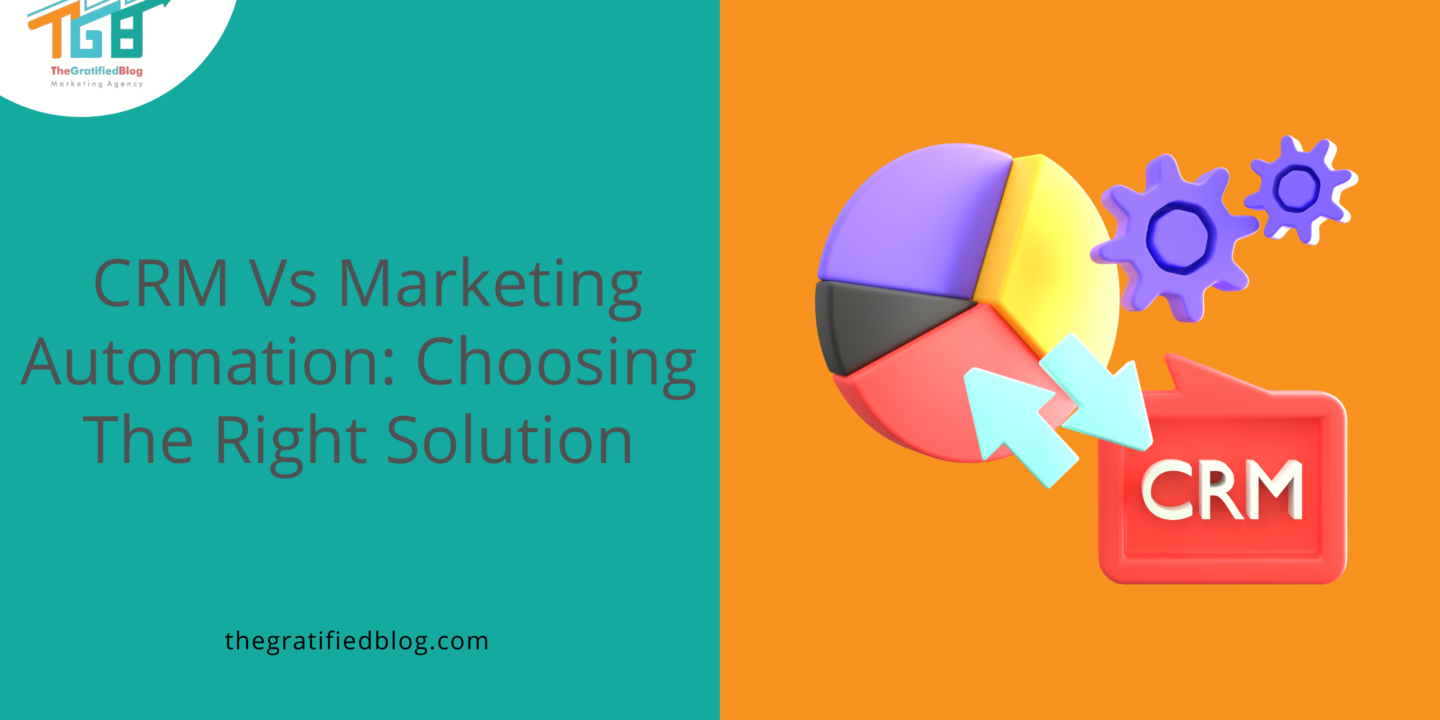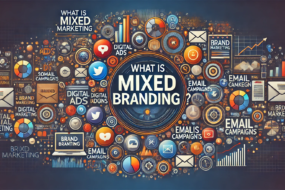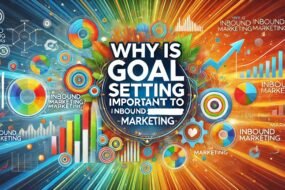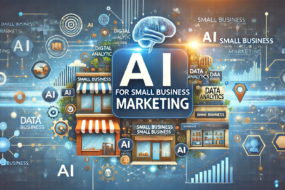
In the dynamic landscape of modern marketing, the debate between “CRM vs Marketing Automation” has become increasingly prominent. As businesses strive to optimize their customer engagement strategies, understanding the nuances and functionalities of CRM systems and Marketing Automation platforms becomes paramount.
In this comprehensive exploration, we delve into the intricacies of CRM and Marketing Automation, examining their roles and differences,
Let’s navigate the realms of CRM vs Marketing Automation to unveil their distinct capabilities and benefits for businesses aiming to thrive in today’s competitive market.
So, let’s get started:
What Is Customer Relationship Management?
CRM entails a strategic approach and technology-enabled system crafted to oversee and analyze customer interactions and relationships throughout the lifecycle. CRM aims to enhance business relationships, streamline processes, and increase customer retention and loyalty.
Benefits Of Using CRM For Businesses
- Improved customer relationships: CRM centralizes customer data, interactions, and preferences, enabling businesses to understand customers better and provide personalized experiences. This leads to stronger relationships, increased loyalty, and higher customer retention rates.
- Enhanced customer satisfaction: By leveraging CRM data to anticipate customer needs, address issues proactively, and deliver timely and relevant solutions, businesses can significantly improve customer satisfaction levels and create positive experiences.
- Streamlined sales and marketing processes: CRM automates sales and marketing workflows, from lead generation and nurturing to conversion and post-sale support. This automation reduces manual tasks, improves efficiency, and ensures consistent messaging, resulting in higher productivity and ROI for sales and marketing efforts.
What Is Marketing Automation?

Marketing automation uses software platforms and technologies to automate repetitive marketing tasks, workflows, and processes, allowing businesses to create tailored and personalized marketing campaigns at scale.
Advantages Of Marketing Automation In Marketing Campaigns
- Automated lead nurturing: Marketing automation streamlines lead nurturing through computerized workflows, email sequences, and personalized content. This ensures timely and relevant interactions with leads, increases engagement, and moves leads more effectively through the sales funnel.
- Personalized marketing communications: Marketing automation enables businesses to categorize their audience according to demographics, behavior, and preferences. Companies can enhance engagement, conversion rates, and customer satisfaction by delivering personalized content, offers, and recommendations to each segment.
- Data-driven decision-making: Marketing automation platforms provide valuable insights and analytics into campaign performance, customer behavior, and ROI. This data-driven approach allows businesses to optimize real-time campaigns, make informed decisions based on actionable data, and continuously improve marketing strategies for better results.
Now that you understand the fundamentals of CRM and Marketing Automation let’s delve deeper into their comparison.
Differences Between CRM Vs Marketing Automation
Focus And Purpose

- CRM’s primary focus lies in managing interactions and relationships with customers. CRM systems are designed to centralize customer data, facilitate communication, and track interactions across various touchpoints. Their primary purpose is to enhance customer relationships and satisfaction and encourage repeat business by offering an all-encompassing perspective on customer interactions and preferences.
- Marketing Automation platforms focus on automating routine marketing tasks like email campaigns, lead nurturing, and campaign management. Their primary purpose is to streamline marketing processes, deliver personalized marketing communications, and drive conversions by automating tasks, workflows, and campaigns based on customer behavior and preferences.
Functionality And Features

- CRM features include contact management, sales tracking, and customer service: CRM software includes features like contact management, lead management, sales tracking, customer service tools, and reporting/analytics. These functionalities help businesses manage customer interactions, track sales activities, and provide personalized customer support to improve overall customer experience.
- Marketing Automation features like email marketing, lead scoring, and campaign management: Marketing Automation platforms offer features such as email marketing automation, lead scoring, campaign management, segmentation, and personalization. These functionalities help businesses automate marketing tasks, nurture leads, and execute targeted campaigns to generate and convert leads more effectively.
Integration And Collaboration

- How CRM integrates with sales and customer service departments: CRM systems integrate with sales tools, customer service platforms, and other business systems to streamline workflows, improve collaboration, and provide a unified view of customer interactions across departments. This integration enhances communication, coordination, and data sharing between sales, marketing, and customer service teams.
- How Marketing Automation Collaborates with Marketing Teams for campaign execution: Marketing Automation platforms facilitate collaboration between marketing teams by providing tools for campaign planning, execution, tracking, and analysis. They enable marketers to create, automate, and optimize marketing campaigns based on data insights, customer segmentation, and performance metrics, fostering collaboration and alignment across marketing functions.
Now that you know their distinctions, let’s explore which option is best suited for your business.
Choosing The Right Solution For Your Business
Below is an in-depth explanation of the factors to take into account when deciding between CRM and Marketing Automation, as well as evaluation criteria for selecting the right software:
Factors to consider when deciding between CRM and Marketing Automation:
- Business goals and objectives: Identify your business goals and objectives related to customer management and marketing. Determine whether your focus is primarily on improving customer relationships, managing sales processes, or automating marketing campaigns. Aligning the software choice with your business goals ensures you select a solution that meets your needs and objectives.
- Budget and resource allocation: Evaluate your budget constraints and availability for implementing and maintaining CRM or Marketing Automation software. Consider software licensing fees, implementation costs, ongoing maintenance, training expenses, and required staffing/resources. Choose an option that is in line with your budget and offers the features and functionalities essential for achieving your business goals.
- Integration with existing systems: Assess how well the CRM or Marketing Automation software integrates seamlessly with your existing systems, such as ERP (Enterprise Resource Planning), accounting software, email platforms, and other business tools. Seamless integration ensures data consistency, workflow efficiency, and a unified view of customer information across your organization. Choose a solution that offers robust integration capabilities to maximize system interoperability and data sharing.
Evaluation criteria for selecting CRM or Marketing Automation software:
- Scalability and customization options: Evaluate the software’s scalability and customization capabilities to accommodate your business growth and evolving needs. Consider adding users, scaling functionality, customizing workflows, and adapting to changing business requirements. A scalable and customizable solution ensures long-term flexibility and alignment with your business processes.
- User interface and ease of use: Assess the software’s user interface (UI) and user experience (UX) to ensure your teams’ ease of use and adoption. A user-friendly interface with intuitive navigation, transparent workflows, and customizable dashboards enhances user productivity, reduces training time, and promotes user adoption across departments. Choose a solution that offers a visually appealing, intuitive interface tailored to your users’ needs and preferences.
- Support and training services: Consider the level of support and training services provided by the software vendor or service provider. Look for comprehensive onboarding, training resources, user documentation, and ongoing support options such as helpdesk assistance, online forums, and knowledge bases. Access to reliable support and training services ensures smooth implementation, user proficiency, and timely resolution of issues or challenges that may arise during software usage.
Now that you understand the process of choosing between CRM and Marketing Automation let’s explore how they collaborate effectively.
How Do CRMs And Marketing Automation Work Together?
CRM and Marketing Automation are complementary tools that seamlessly enhance customer engagement, improve marketing effectiveness, and drive business growth. Here’s how they collaborate:
Data Synchronization And Customer Insights
One of the critical ways CRM and Marketing Automation platforms work together is through data synchronization. CRM systems centralize customer data, including contact information, communication history, purchase history, and preferences.
Marketing Automation platforms leverage this data to create targeted marketing campaigns, personalized communications, and automated workflows. By integrating CRM and Marketing Automation systems, businesses can ensure that customer data is synchronized in real-time, providing marketers with accurate and up-to-date insights into customer behavior, interests, and engagement levels.
Lead Management And Nurturing
CRMs and Marketing Automation platforms collaborate to streamline lead management and nurturing processes. CRM systems capture leads from various sources, such as website forms, email inquiries, and events, and assign them to sales teams for follow-up.
Marketing Automation platforms then take over by automating lead nurturing campaigns based on lead scoring, segmentation, and behavioral triggers.
For example, Marketing Automation software can send personalized emails, targeted content, and automated responses to nurture leads through the sales funnel. Integrating CRM and Marketing Automation ensures that lead data, interactions, and engagement history are seamlessly shared between sales and marketing teams, enabling coordinated efforts to convert leads into customers.
Campaign Tracking And Performance Analysis
CRMs and Marketing Automation work together to track marketing campaigns and analyze performance metrics. Marketing automation platforms track campaign engagement, open rates, click-through rates, conversions, and other crucial metrics for monitoring performance and measuring campaign effectiveness. CRM systems complement this by capturing customer responses, inquiries, purchases, and interactions from marketing campaigns.
By integrating CRM and Marketing Automation data, businesses can gain comprehensive insights into campaign ROI, customer acquisition costs, conversion rates, and lifetime value. This integrated approach enables marketers to make data-driven decisions, optimize campaign strategies, and allocate resources effectively for maximum impact.
FAQs
Q1. What is the difference between CRM and Marketing Automation?
A. CRM centers around effectively managing customer interactions, relationships, and data to improve customer relationships and sales processes. Conversely, marketing automation automates marketing tasks and workflows to streamline campaign execution, lead nurturing, and personalized communications.
Q2. What is the collaboration between CRM and Marketing Automation like?
A. CRM and Marketing Automation systems work together by synchronizing customer data, streamlining lead management and nurturing processes, and tracking campaign performance. This collaboration enables businesses to deliver personalized experiences, nurture leads effectively, and make data-driven marketing decisions.
Q3. Which solution is right for my business: CRM or Marketing Automation?
A. The choice between CRM and Marketing Automation depends on your business goals, objectives, and needs. CRM is ideal if you prioritize managing customer relationships, improving sales processes, and enhancing customer service. On the other hand, if you focus on automating marketing tasks, optimizing campaign execution, and nurturing leads, Marketing Automation is more suitable. Many businesses benefit from integrating CRM and Marketing Automation for a comprehensive approach to customer engagement and marketing effectiveness.
Conclusion
Given your understanding of the differences between CRM and marketing automation, why not incorporate these tools into your marketing strategy and experience the tangible results they can drive for your business? You can establish a unified and effective marketing approach by leveraging CRM to manage customer relationships, sales processes, and customer service and using marketing automation to automate marketing tasks, lead nurturing, and personalized communications.
So, take advantage of CRM and marketing automation to maximize your marketing endeavors and succeed in today’s competitive landscape.
However, if you still have any questions related to the blog, please feel free to leave them in the comment section below. We will be happy to answer them.
Thanks for reading 🙂








No Comments